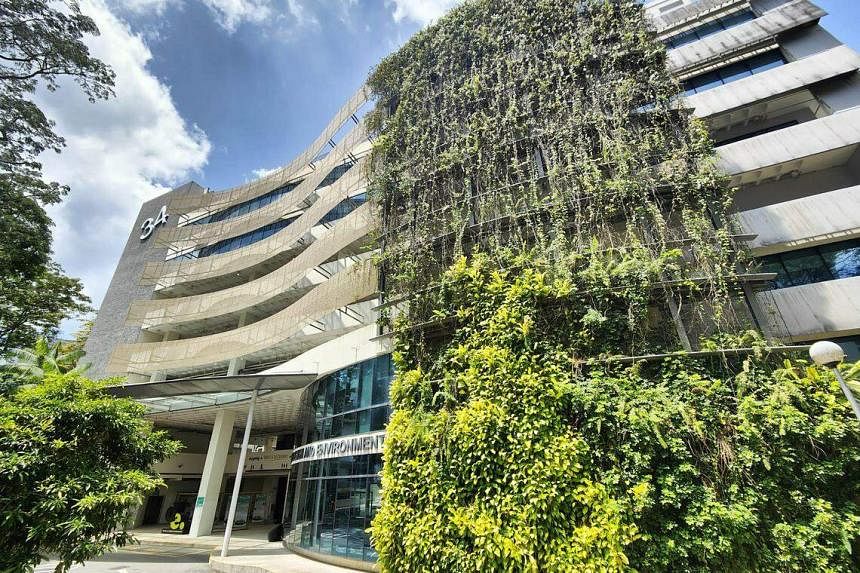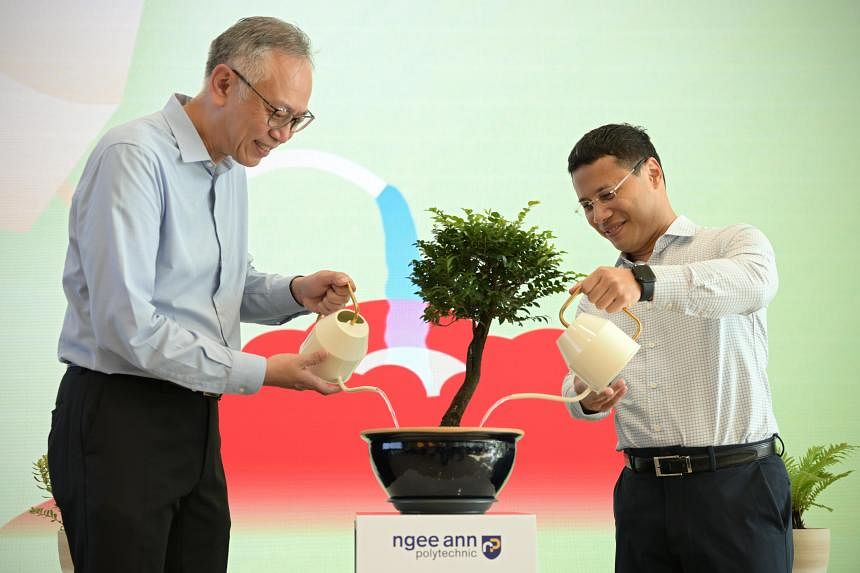SINGAPORE – From April, all first-year students at Ngee Ann Polytechnic (NP) have to take a core module in sustainability education and innovation, as the institution seeks to prepare them for green careers and integrate sustainability into its curriculum, operations and partnerships.
The module, called Innovation Made Possible, aims to inculcate in students an innovative mindset and sustainability perspectives, as they learn problem-solving for community-based issues.
It is part of the polytechnic’s newly launched Sustainability Education and Ecosystem Development (Seed) initiative, which also seeks to develop sustainability-focused industry partnerships, NP said in a statement on March 28.
Mr Lim Kok Kiang, the principal and chief executive of NP, said the compulsory core module will give students a firm foundation and the confidence to tackle complex interdisciplinary and sustainability-centred industry challenges in their final-year projects.
“We’ll need people who are skilled in navigating the intersections between profits and planet so that they are able to connect the dots, make the necessary trade-offs, assess the risks involved, to dream and deliver solutions that are not yet available today,” Mr Lim said at the launch of the Seed initiative at the polytechnic on March 28.
As part of the Seed initiative, NP will also introduce the new Environmental Impact Scholarship, sponsored by the Lien Foundation, which will be awarded to two final-year students each year.
The scholarship will cover the students’ school fees for a year, and provide them with opportunities to serve internships with organisations that are leaders in sustainable development, such as Keppel and Mapletree, said NP.
The Seed initiative will also see NP partner with Keppel to transform aged buildings in the polytechnic into green assets.
NP’s Smart34 building, which houses its School of Design and Environment, will be the site of the first project under the partnership: The polytechnic’s students and staff will work with Keppel’s Sustainable Urban Renewal Team to enhance and green the building, which was built in 1987.

On the industry front, NP announced its alliance with 15 partners, such as Meinhardt and Sodexo, to spearhead the NP Built Environment Ecosystem (BEE).
Through BEE, the polytechnic aims to offer smart facilities management training, by combining tech knowledge from infrastructure solutions providers with NP’s training expertise.
In partnership with JTC Corporation under Seed, NP seeks to upskill 1,000 professionals from both public and private organisations in the built environment sector through a three-day Digital Facilities Management programme.
Set to commence in April, the programme will train participants in advanced technologies in facilities management, management of an integrated operations centre, and deploying the tech and operations centre in their organisations.
NP said that with the SG Green Plan 2030 pushing towards having 80 per cent of buildings here become green, this training will equip those working in the sector to make the green transition.

Participants will be able to tap SkillsFuture Singapore funding to attend this programme. If they are enrolled by their employers, the employers will co-pay.
Minister for National Development Desmond Lee said at the launch of Seed that as the jobs and skill sets in the built environment sector continue to evolve, jobs will need to be redesigned, and the existing workforce will need to reskill.
Calling climate change the “single most important challenge” that Singapore will face, Mr Lee said that initiatives like Seed are important efforts in long-term planning for the next generation and beyond.
“We must remain focused on planning for the long term and working with current and future generations of Singaporeans to plant the seeds of sustainability, and to plant the seeds of a mindset of stewardship,” he said.


